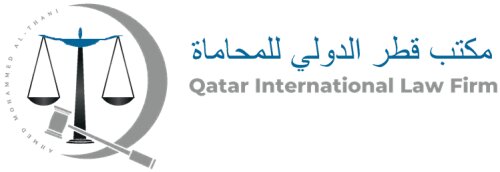Best Education Law Lawyers in Doha
Share your needs with us, get contacted by law firms.
Free. Takes 2 min.
List of the best lawyers in Doha, Qatar
About Education Law in Doha, Qatar
Education Law in Doha, Qatar encompasses a wide range of regulations and legal frameworks that govern the operation of educational institutions, the conduct of students and staff, and the rights and responsibilities of all stakeholders in the education sector. It addresses issues such as educational standards, accreditation, licensure, student rights, and teacher qualifications. The laws are designed to ensure quality education, uphold fair practices, and protect the interests of students, educators, and institutions.
Why You May Need a Lawyer
Seeking legal advice in the field of Education Law may become necessary under several circumstances, such as:
- Addressing disputes between students and educational institutions, including matters related to disciplinary actions or expulsion.
- Resolving conflicts regarding special education needs and accommodation for students with disabilities.
- Ensuring compliance with local and international educational standards and accreditation processes.
- Representation in cases of alleged discrimination based on race, gender, nationality, or religion within educational settings.
- Guidance on legal obligations pertaining to faculty hiring, contracts, and employment disputes.
- Handling issues related to school governance and management practices, including the roles and responsibilities of school boards.
Local Laws Overview
Qatar’s education system operates under a series of local laws and regulations influenced by both Islamic principles and international educational standards. Key aspects include:
- The Supreme Education Council governs educational standards and policies, ensuring compliance across institutions.
- Laws regulating the licensure and certification of schools and teachers are crucial for maintaining educational quality.
- Regulations are in place to support inclusive education, mandating accommodations for students with special needs.
- Private and international schools must adhere to specific guidelines set by the Ministry of Education and Higher Education.
- Student protection laws address issues of harassment, discrimination, and ensure the safeguarding of minors within educational settings.
Frequently Asked Questions
What is Education Law?
Education Law involves the legal principles, regulations, and policies guiding the operation and governance of educational institutions and the rights and obligations of students and staff.
Do I need a lawyer to handle school admission appeals?
While not mandatory, a lawyer experienced in Education Law can help navigate complex admission appeal processes, especially in cases involving discrimination or procedural errors.
What are my rights if my child with special needs is not receiving appropriate accommodations?
Under Qatari law, schools are required to provide reasonable accommodations for students with disabilities. Legal recourse may be available if schools fail to comply.
How can I ensure a private school meets legal and quality standards?
You can verify a school's compliance with local laws and standards by checking its accreditation and registration status with the Ministry of Education and Higher Education.
What steps can I take if my child faces discrimination at school?
It is advisable to document incidents and attempt resolution with the school administration first. If unresolved, legal assistance may be necessary to address the issue formally.
Can educational institutions in Doha enforce dress codes?
Yes, schools may enforce dress codes as long as they are reasonable, non-discriminatory, and communicated clearly to students and parents.
What recourse is available for teachers facing wrongful termination?
Teachers can seek legal counsel to address wrongful termination, potentially leading to negotiation, mediation, or litigation to resolve employment disputes.
Are there legal protections for students in the event of school closures?
Yes, there are protocols in place to ensure minimal disruption in education, such as transferring students to equivalent institutions or compensatory measures.
Is homeschooling legal in Doha, Qatar?
Homeschooling is permitted under certain conditions, typically requiring adherence to curricular standards set by the Ministry of Education and Higher Education.
What legal action can schools take against students for misconduct?
Schools have the authority to enforce disciplinary measures, including suspension or expulsion, as long as procedures adhere to established policies and laws.
Additional Resources
For further guidance on Education Law in Doha, Qatar, consider consulting the following resources:
- The Ministry of Education and Higher Education: Provides information and guidance on educational policies and standards.
- Qatar Foundation: Offers resources related to educational advancement and policy initiatives.
- Legal Aid Services: Various local legal aid organizations provide support and advice on education-related legal matters.
- Educational Institution Websites: Universities and colleges may have specific legal support or guidance services.
Next Steps
If you require legal assistance in Education Law, consider taking the following steps:
- Identify your specific legal issue or concern related to education.
- Gather relevant documentation and evidence to support your case.
- Contact a legal expert or law firm specializing in Education Law in Doha for a consultation.
- Consider reaching out to local advocacy groups for additional support and information.
By taking these steps, you can better understand your legal options and ensure that your educational rights and responsibilities are protected.
Lawzana helps you find the best lawyers and law firms in Doha through a curated and pre-screened list of qualified legal professionals. Our platform offers rankings and detailed profiles of attorneys and law firms, allowing you to compare based on practice areas, including Education Law, experience, and client feedback.
Each profile includes a description of the firm's areas of practice, client reviews, team members and partners, year of establishment, spoken languages, office locations, contact information, social media presence, and any published articles or resources. Most firms on our platform speak English and are experienced in both local and international legal matters.
Get a quote from top-rated law firms in Doha, Qatar — quickly, securely, and without unnecessary hassle.
Disclaimer:
The information provided on this page is for general informational purposes only and does not constitute legal advice. While we strive to ensure the accuracy and relevance of the content, legal information may change over time, and interpretations of the law can vary. You should always consult with a qualified legal professional for advice specific to your situation.
We disclaim all liability for actions taken or not taken based on the content of this page. If you believe any information is incorrect or outdated, please contact us, and we will review and update it where appropriate.















